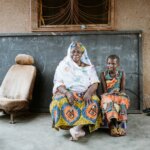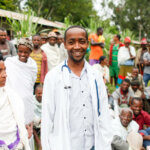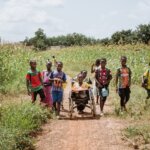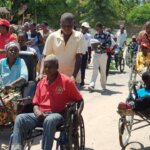Driving change
We focus on people who are facing multiple barriers
At Light for the World, we focus on people with disabilities facing multiple barriers, including children, women, rural communities and those hit by disaster.
We concentrate on selected countries where the need is greatest according to the Human Development Index and where we believe we can achieve long-term system change by strengthening the existing health, education, social and economic set-up so it reaches those who need the services the most for many years to come.
Creating powerful partnerships, we work tirelessly to strengthen the entire system.
Evidence-based programming
Outcome-oriented monitoring, evaluation and applied research is crucial to us. We use it to continuously learn and adapt our eye-health and educational programmes, to ensure maximum effectiveness for the people we work with.
Systems change
Our team expertise lies in the complexity of achieving lasting systems change.
Learn more about our Strategy 2023
Systems change allows permanent positive outcomes for a country and its people. It is an ambitious goal, requiring many intervention types such as the following:
- pilot initiatives
- comprehensive programmes
- convening of stakeholders
- campaigning and influencing.
Systems change covers the international, to the national, to the district and regional level and includes a special emphasis on grass roots community. It requires programmes that do not rely on individual people or funding sources but are instead embedded in the political, market, health, education and social structures that exist around them.
At Light for the World, we create change with local people, organisations and governments because we want our impact to last.
Theory of change
Our programmatic approach is based on our Theory of Change, supporting local partners to implement a combination of disability-specific actions, targeted actions in the mainstream, access to programmes, empowerment and social change processes.





